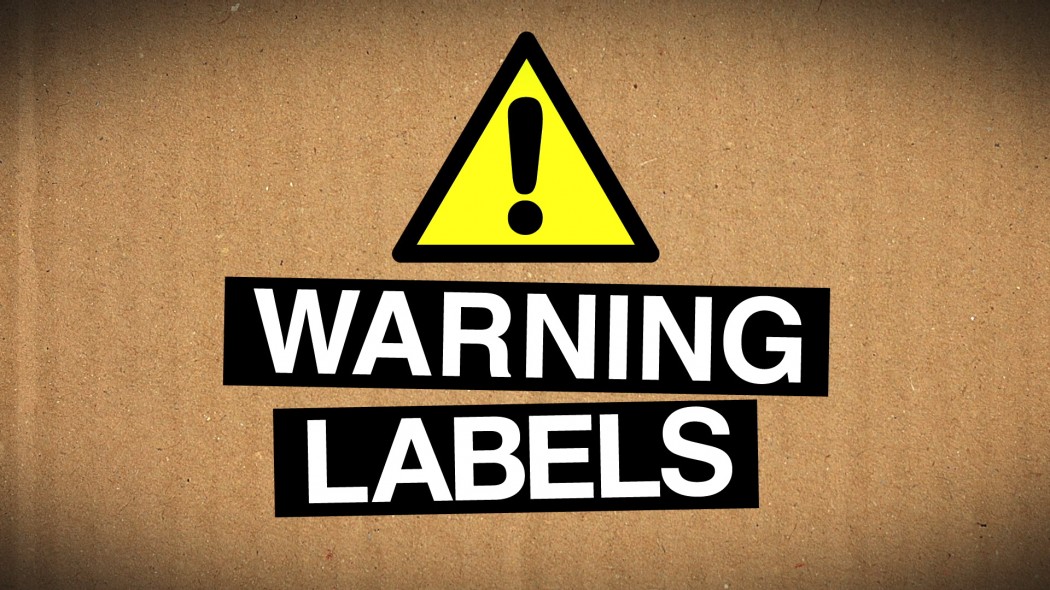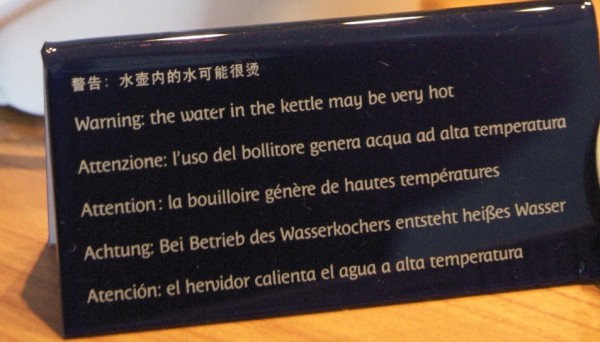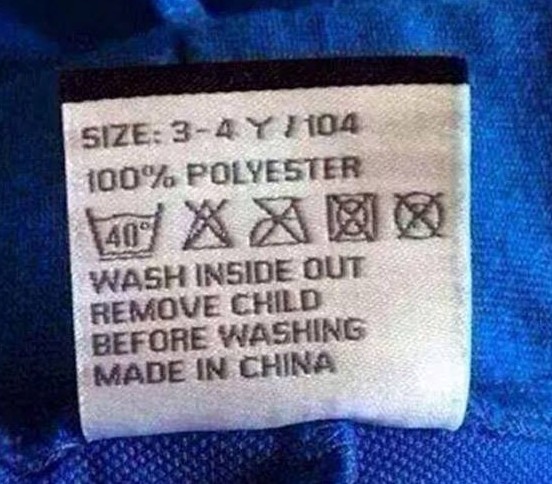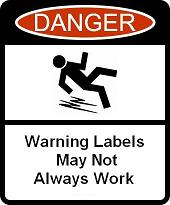Verandah Magazine’s Robert Drewe finds the parallel universe of warning labels a mightily confusing place…
The sensation that nowadays I seem to be living in a parallel universe began calmly enough. There I was, sitting in a Qantas plane to Perth, reading about the latest Canberra shenanigans, when I was served a snack called Bare Bites: Ready to Eat Fresh Sliced Apple.
I was a little staggered to read the warning on the packet: ‘This product may contain apple.’ (Who would have thought?) And further surprised to see the use-by date, December 16, 2015, by which time I imagine the freshness might have dissipated somewhat.
Clearly, Qantas and the Bare Bite company weren’t about to risk being sued by passengers who were not only allergic to apples (a rare condition suffered by people who are allergic to birch tree pollen) but who couldn’t read that they were consuming a food product with the dangerous word ‘apple’ emblazoned on its label.
On reaching my destination, I opened a bottle of Wirra Wirra sauvignon blanc over dinner. Wine bottles tell you the number of standard drinks they contain, and this one announced, confusingly: ‘7.7 standard drinks at sea level.’ I wondered if I’d I get more or fewer drinks at, say, Mount Tom Price (elevation 726 metres), or, especially, on Mount Kosciuszko (2228 metres or 7310 feet)?
The next day the GST was in the news again, as certain financial types suggested that only an increase to 15 percent would end the country’s economic woes. Worriedly, I made the mistake of idly Googling the words Australian GST. Well, I won’t do that again. I quote Australian Tax Code, Section 165-55:
The Commisioner may treat a particular event that actually happened as not having happened; and treat a particular event that did not happen as having happened and, if appropriate, treat the event as having happened at a particular time; and having involved a particular action by a particular entity; and treat a particular event that actually happened as having happened at a time different from the time it actually happened; or having involved particular action by a particular entity (whether or not the event actually involved any action by that entity).
Is it just me, or does confusion reign supreme? From the home front, where every food, clothing and bathroom cupboard these days contains product warnings so ridiculous that it’s hard to imagine even the most litigious customer bothering to sue (but they do), to everyday objects in the world around us.
From the ubiquitous warning on packets of peanuts: ‘May Contain Nuts'; on sleeping pills: ‘May Cause Drowsiness'; on a curling iron: ‘Not For Internal Use'; in a microwave-oven manual: ‘Do Not Use For Drying Pets'; on a Superman costume: ‘This Does Not Enable You to Fly!'; on most clothing irons: ‘Do Not Iron Clothes While On Body'; and in a manual for a child’s stroller: ‘Caution – Remove Infant Before Folding and Storage.’ (I’d like to know the number of unfortunate infants folded and stored before the stroller company and its lawyers woke up to this product shortcoming.)
Of course there are more exotic warnings: ‘Use Care When Operating Car’ (on a bottle of dog distemper pills); ‘Do Not Use Orally’ (on a toilet brush); ‘Do Not Try To Stop Machine With Your Hand’ (on a chainsaw manual); ‘Do Not Eat’ (on Apple’s website for the Ipod Shuffle; ‘This Product Moves When Used’ (on the Razor scooter); not to mention the terrifying warning, ‘Not To Be Inserted In Penis’ (on the 6PCS Precision screwdriver set).
One really scared company, keen to avoid any possible litigation about anything whatsoever (but still missing the key point, I think) simply warns: ‘If You Cannot Read This Warning Do Not Use This Product.’
Even so, the lawyers roam unfettered and a company can’t be careful enough. A McDonald’s customer in Pacoima, California, is suing the fast food restaurant for $1.5million because he was given only one napkin with his meal. Webster Lucas claims he is now unable to work because of the ‘undue mental anguish’ and ‘emotional distress’ caused by the incident, when he was given just one napkin with his Quarter Pounder.
Good try, Mr Lucas. But you have a rival in the litigious stakes: the American advertising executive, Laura Ziv, who sued her boss for $6 million over a claim he accused her of looking like the Scottish singing star Susan Boyle. Ms Ziv, 45, from New Jersey, said she was so upset by the facial and physical comparison to the I Dreamed a Dream singer that she became seriously ill.
If I were Susan Boyle, I’d sue Ms Ziv for that rudeness. Twenty million should cover it.
Robert Drewe’s most recent books The Local Wildlife and Swimming to the Moon are on sale here: penguin.com.au.local-wildlife








